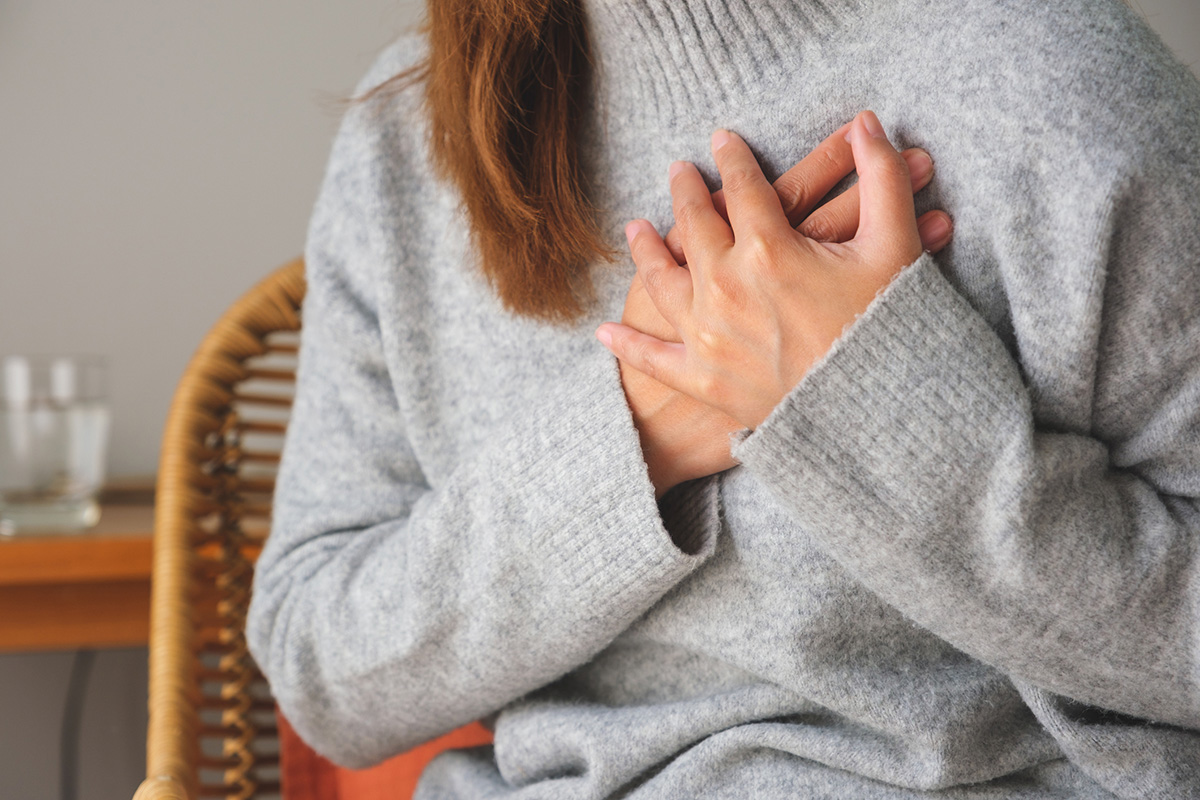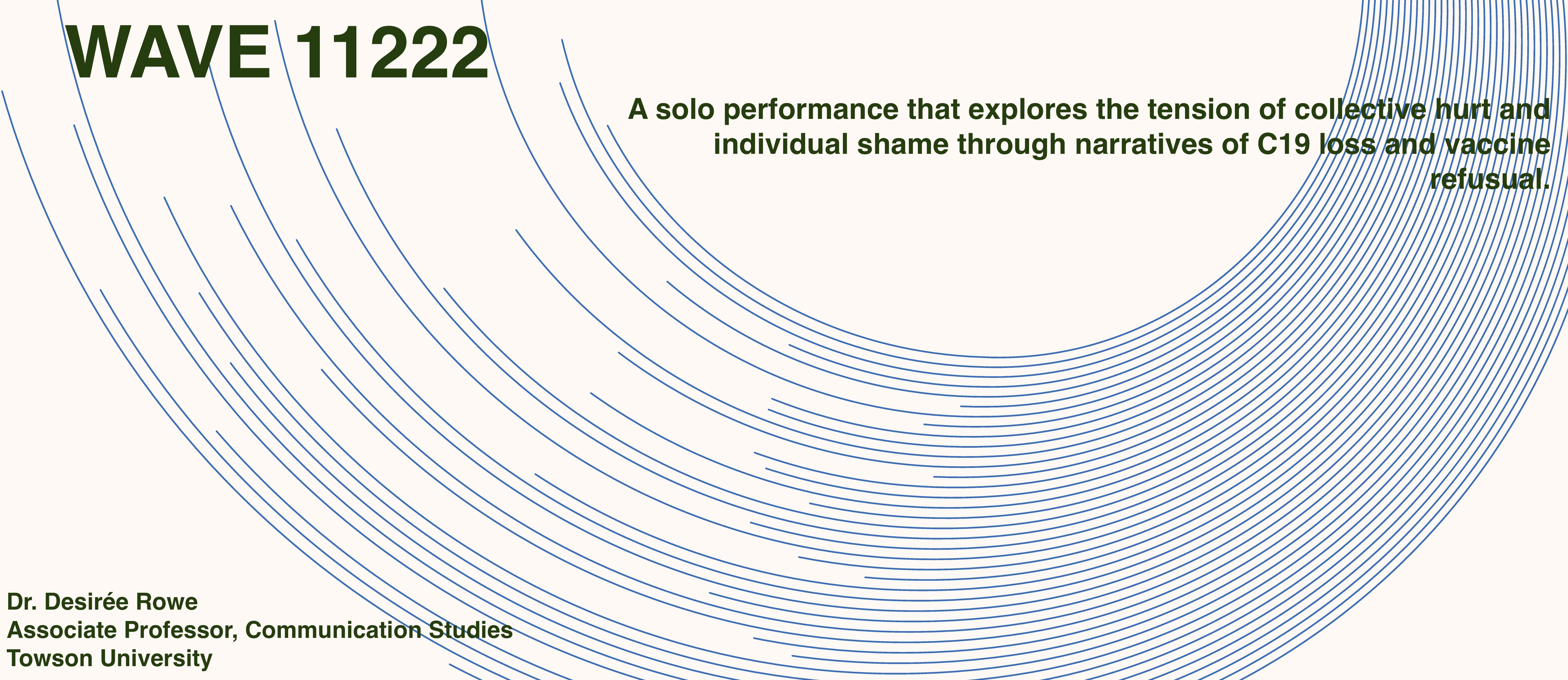
Desirée Rowe, an associate professor of communication at Towson University in Maryland developed “Wave 1.12.22,” a performance that uses storytelling and dark humor to explore collective grief and individual shame. “Wave 1.12.22” will be performed at DePaul on April 22. (Credit: iStock Farknot_Architect)
In January 2022, the United States experienced a surge of COVID-19 cases. Vaccines against the virus that were proven to reduce chances of serious illness and death were available at the time.
Desirée Rowe, an associate professor of communication at Towson University in Maryland, lost their father to the disease at that time. Rowe says they felt shame revealing their father voluntarily refused vaccination: “There’s a lot of heaviness in that conversation.”
The experience inspired them to interview others who were grieving family members who died of COVID-19 and had refused the vaccine. From those interviews, they developed “Wave 1.12.22,” a performance that uses storytelling and dark humor to explore collective grief and individual shame.
The College of Communication and the
Dialogue Collaborative are hosting the performance and discussion April 22 from 1 – 2:30 p.m. in Cortelyou Commons. Register for the event on
Eventbrite .
 “Wave 1.12.22” is a performance that uses storytelling and dark humor to explore collective grief and individual shame that will be performed at DePaul on April 22.
“Wave 1.12.22” is a performance that uses storytelling and dark humor to explore collective grief and individual shame that will be performed at DePaul on April 22. Performance can be a unique and effective entry point for dialogue on difficult topics, says Dusty Goltz, a Vincent de Paul professor of communication and member of the Dialogue Collaborative who is organizing the event. He leads the
Dialogue in Action workshops , a six-week training on the principles and facilitation of dialogue.
“Staged performance and art stir, inspire and guide us into feelings and connections that are uniquely powerful,” he says. “Doors to unexpected discussions can fly open, and so the opportunity for audiences to connect and share experiences following the work is exciting and generative.”
Goltz and facilitators who have participated in the Dialogue in Action workshops will lead small group discussions following the performance where audience members can reflect on what they saw and share their own experiences of grief and loss during the pandemic.
Vaccine politicization
Rowe says their father bought into the falsehoods that the coronavirus vaccine wasn’t safe and could be used to control people via microchip. Themes of their performance cover the interpersonal struggles people had with their loved ones trying to convince them to get vaccinated and the need for societal conversations around the harm of anti-vaccine rhetoric.
“Putting together the show was a labor of solidarity to think about how communities can come together to not only memorialize their loved ones but to ask for accountability,” Rowe says. “Because over a million people are dead, and the number keeps growing. There's very little accountability for that damaging rhetoric that killed so many folks.”
Performance and dialogue
After completing the interviews on pandemic grief, Rowe says they could have published the findings in an academic journal. Instead, they chose to develop and present the performance to make it more accessible.
“Performance was my first go-to outlet because it feels really hypocritical to talk about community, activism and solidarity, and then put that conversation behind a paywall,” Rowe says.
Following the stay-at-home-orders during the pandemic, there was a push to return to normal, Goltz says. With the five-year anniversary of the pandemic this year, he says now is a good time to have these conversations.
“A lot of complexity and loss was brushed under the rug in order to get back to work. But those feelings lingered, weighed, and continued to drag at so many areas of our lives,” Goltz says. “Those losses need spaces to be spoken and shared because — in that process — we come to know and face them differently.”
Goltz hopes the April 22 event will be an opportunity for audiences to process and reflect on their own experiences. More opportunities for dialogue with the DePaul community are on the
Dialogue Collaborative’s DeHub page.